Leadership Development Projects
Dayita Cable, Class of 2025
-
Project : Big Bend Buddies
-
What began as a summer initiative to give back to the local community has progressed into a large medical student run organization that has trained over 200 volunteers, and has accumulated over 2000 hours of service. Since the summer of 2022, Medical students and faculty spend their Saturday mornings at the Family Promise shelter to provide extracurricular and nutritional activities for children experiencing homelessness. Additionally, we have partnered with Nutrition in Medicine and receive funding from a semesterly walking challenge that promotes healthy habits in COM students and faculty, as well as raising thousands of dollars to provide equipment, hydration and healthy snacks for the children at the shelter. Activities range from soccer, basketball, dance, kite flying and outdoor artistic endeavors to name a few!
-
I have found the implementation of this program to be one of the most challenging, formative, and rewarding experiences of my academic career. I have had to coordinate a relationship between Florida State University College of Medicine, and the HOPE homeless coalition. I have learned how to manage large amounts of students with different schedules, interests, and backgrounds. I engage in public speaking much more often than I expected to, and have rallied a large team around me. I am creating a program from the ground up, and am navigating how to create a leadership structure that will allow the program to continue as I enter my clinical rotations, and will have to step back from my management role. Not only does the program benefit the children living at the shelter, but also the medical students that volunteer with us. It is an hour of the week where the students can step away from their computers, and step outdoors. It is a break from the rigorous demands of school, as well as an opportunity to work together as a team to support the most vulnerable members of the Tallahassee community. We have formed bonds with the children that we work with, and while it is heartbreaking at times to say goodbye, we always have hope that the children that leave the shelter, are moving towards more stable and safe housing.
Alyssa Poe, Class of 2025
-
"Joining LIM was probably one of the best decisions I have made so far during my medical school journey. Part of being a physician means that you also must be a leader for your healthcare team. And though we may learn some leadership skills through our preceptorships or clerkship rotations, most of them are learned through observation. LIM teaches us these skills from our very first year and allows us to apply them through a variety of activities, such as holding board positions during first and second year and participating in a community project. You learn a lot about yourself and are constantly pushed outside your comfort zone. For example, LIM’s foundation is based on the ESCI model. Through workbooks and questionnaires, we find out our leadership strengths and weaknesses. Me being me, I focused in on my weaknesses, which was inspirational leadership. Though my cohort (nine other second-year medical students) has many similarities, what’s so amazing about us is that we are also very diverse. There were many others whose strength was inspirational leadership and could give me their advice and perspective of how to strengthen this area. It’s reassuring to know that I can always count on them to support me when I need help. And that’s key in medicine- to trust and rely on your team."
Amanda Raymond, Class of 2025
-
The purpose of my study is to examine the association between school bullying and health risk behaviors related to violence, mental health, substance use, and weight-related factors. School bullying is a major public health threat as it presents a variety of developmental and psychological adolescent hazards that stretch into adulthood problems. By analyzing the relationship between school bullying and health behavioral outcomes among adolescents in Florida, educators and health care professionals will have the ability to intervene early and prevent the long-term effects of bullying.
Tamara Raymond, Class of 2025
-
My project focuses on investigating the association between high infant mortality rates in healthy versus non-healthy Florida counties given maternal health indicators. Although infant mortality rates have declined in the state of Florida (5.8% in 2020 compared to 7.0% in 2000), disparities influencing these rates exist across Florida counties. Many factors can attribute to high infant mortality rates in certain counties, including income inequality, access to and quality of healthcare, race/ethnicity, obesity, and disadvantaged socioeconomic status. Using Florida Health Charts and County Health Rankings, my project will compare these factors and their influence on infant mortality rates in the state of Florida.
Mckenzie Seitz, Class of 2025
-
Leadership in Medicine has already significantly enhanced my experience as both a medical student and future physician and leader. Without LIM, I would not have been granted the opportunity to seek mentorship outside of the College of Medicine to learn and hear from leaders in the greater Tallahassee area. As a part of LIM, I have been able to focus on a quality improvement project that directly affects the members of my community and aims to address the growing needs of community members with opioid use disorder (OUD). We are currently working with local hospitals to ensure that all healthcare providers are educated and equipped with the knowledge and tools to best serve and care for those with OUD. I am truly grateful to be a part of this organization as Leadership in Medicine is just one way that the FSU COM seeks to help students truly embody the mission of the school to become servant leaders.
Alexandra Mackey, Class of 2025
-
FSU PrimaryHealth Community Cooking Class
-
This cooking class is run in partnership with the FSU College of Medicine and Dietetics program at FSU’s College of Health and Human Sciences.
-
The cooking class is held bi-monthly and hosted in the community kitchen at FSU PrimaryHealth Clinic.
-
At each class, the goal is to prepare a healthy, affordable meal that uses minimal equipment and steps, and common pantry ingredients. Each meal includes both vegetarian/vegan and non-vegetarian options (for example, the last class included chicken thighs and tofu as a protein source). This is to encourage participants to try plant-based foods they might not otherwise eat. For example, at our last class a mother and her daughter attended. Both the mother and daughter enjoyed the tofu and plan to cook it again, and her mom said they had never tried tofu that they liked before.
-
FSU Dietetic students are present to lead conversation and answer nutrition related questions from participants. The class is structured to be more informal and casual than a traditional cooking class. Participants are encouraged to come with any nutrition and cooking related questions they have. While the meal is cooking, everyone sits together and shares recipes, cooking tips, and discuss various topics related to food and nutrition. I think a strength of this class is the community feel developed during these conversations!
-
Community members are encouraged to help with the meal prep. In addition to learning nutrition information, a major goal of this class is to demonstrate and teach basic cooking skills for participants that may not know these skills.
-
Participants include both community members (mostly patients at FSU PrimaryHealth) and FSU medical students
-
Each participant is sent home with educational handouts relevant to the class’s topic, the recipe used in class, and a box of shelf-stable food donated by Second Harvest of the Big Bend.
Savannah Calleson, Class of 2025
-
For my Leadership in Medicine Project, I will be focusing on addressing period poverty in low-income schools within Leon County and Gadsden County. It's estimated that 500 million people live without access to adequate menstrual hygiene. People who experience period poverty are unable to purchase the menstrual products they need, and, in many cases, this means that they cannot go to school or otherwise participate in daily life.
-
As part of my project, I will conduct a scoping review of the literature on the association between food insecurity and period poverty, distribute “emergency period kits” to local schools, and look at the sex education in these schools for potential improvement.
-
My mentor for this project will be Dr. Joedrecka Brown Speights.
Omar Mahboob, Class of 2025
-
Omar Mahboob is leading the Medical Student Refugee Assistance Program, a collaboration between the International Rescue Committee of Tallahassee and Florida State University medical students to help refugees get to and from appointments, access language translation services, and navigate the local health care system.
Shwetha Shetty, Class of 2025
-
The Speak With a Specialist program will be a community-based support program for parents and guardians at Sabal Palm Elementary (the community partnership school affiliated with FSU PrimaryHealth). This program will identify areas of concern for parents via surveys, find specialists to address these areas of concern, and facilitate a focused monthly event to connect them with experts in the field. For example, parents requested help with identifying the mental health needs of their children. In response, Speak with a Specialist will find an expert i.e. a child psychologist, to provide parents with evidence-based information and resources. Speak with a Specialist program aspires to empower parents and enhance their ability to care for their children, which should optimize parent and child outcomes in the long run.
Logan Schulz, Class of 2025
-
I will be assisting Big Bend Hospice’s plans to extend the health services offered by Bethel Missionary Baptist Church’s Mobile Medical Unit. Given the health disparities faced by many underserved areas in and around Leon County, Bethel’s Mobile Medical Unit partners with local communities to help address these inequities by providing health services such as vaccinations, health screenings, mental health resources, and basic physical exams. Big Bend Hospice will supplement the efforts of the Bethel Mobile Medical Unit by helping increase the access to chronic, serious, and end-of-life care in traditionally underserved communities. I am grateful to have the opportunity to assist in their pilot project and its mission to promote health equity!
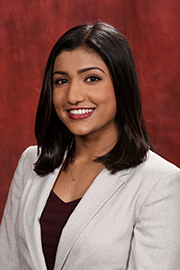
Neha Saini, Class of 2024
Neha Saini is partnering with FSU PrimaryHealth clinic representatives, the Leon County Health Department and the Community Advisory Board at the clinic to train medical and PA students to be health ambassadors to help decrease vaccine hesitancy within our community. The goal of the project is to train the students to conduct door-to-door outreach on the topic of COVID19 vaccines and increase awareness on the topic specifically within the four communities that FSU PrimaryHealth clinic serves. We also hope to organize and invite the community members to a townhall event where they will have the chance to interact with health experts within the community, get their concerns/questions addressed, and possibly get vaccinated or register to do so if they feel comfortable moving forward with that decision.
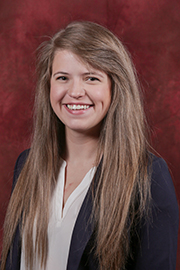
Colleen Leu, Class of 2024
Colleen is working on the creation of a needle exchange program in Leon County.
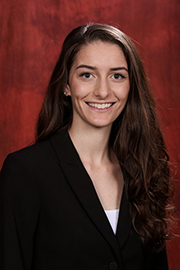
Katlyn Sullivan, Class of 2024
Katlyn is collaborating with medical schools to increase support, resources, and accommodations for pregnant and birthing medical students across the county. This includes, but is not limited to, adding parental leave policies to student handbooks, creating virtual lecture options, increasing pumping access, and encouraging postpartum meal drop-offs. She hopes to expand these changes to residency programs as well.
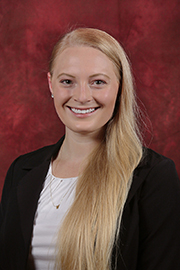
Amelia Hartje, Class of 2024
Amelia is applying strategies at FSU PrimaryHealth to help combat childhood obesity. This clinic serves communities that have experienced higher than average rates of childhood obesity, but this problem has become exponentially worse during the pandemic.
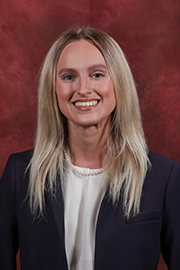
Brittni Miller, Class of 2024
Brittni is analyzing the qualities of CEOs of healthcare facilities in the state of Florida via a survey on education level, necessary leadership qualities, and overall advice.
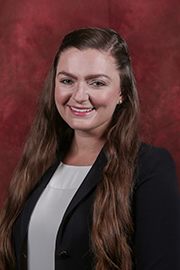
Emily Gansert, Class of 2024
Emily is conducting a quality improvement project at an academic medical center that compares a one vs two day aspirin desensitization in patients with aspirin exacerbated respiratory disease.
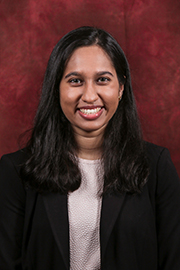
Rida Darji, Class of 2024
Rida is exploring how the current debates on the pandemic have affected the mental health of school children that have been subjected to policies and leadership decisions that they have had no say in.
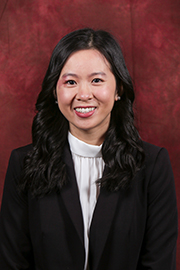
Brittany Long, Class of 2024
Brittany is reviewing access to dermatologic care during the COVID-19 era to better understand how patient needs can be best met through tele-health, with an emphasis on devising practical ways that technology can be incorporated into expanding dermatological care to underserved communities going forward.
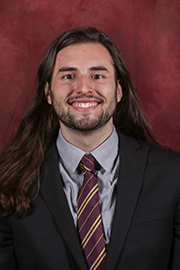
Marc Chartier, Class of 2024
Marc is examining the history of health policy implementation in the US on health outcomes as a means to develop a protocol to better evaluate the recent FL Medicaid extension for women in the postpartum period.
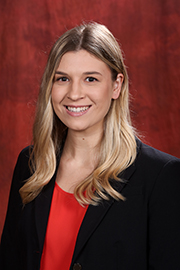
Alyssa Ferlin, Class of 2024
Alyssa is creating a guide that contains specificities about leadership development programs at all US Allopathic Medical Schools.

